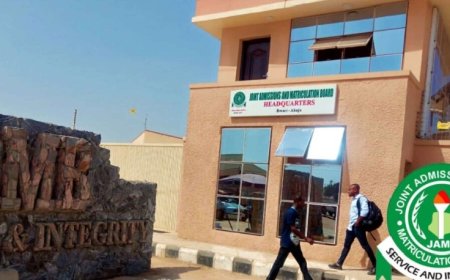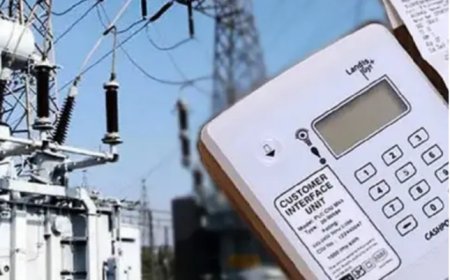Nigerian banks begin to charge N100 for using ATM, N600 for withdrawing at malls, fuel stations, others

In a recent policy shift, the Central Bank of Nigeria (CBN) has mandated new charges on Automated Teller Machine (ATM) withdrawals, effective March 1, 2025. This directive introduces fees ranging from ₦100 to ₦600 per ₦10,000 withdrawal, depending on the ATM's location and affiliation.
Breakdown of the New Charges:
1. On-Us Transactions (Withdrawals from a Customer's Own Bank's ATM):
i. Charge: No fee.
ii. Details: Customers can withdraw funds from ATMs operated by their own bank without incurring any charges.
2. Not-On-Us Transactions (Withdrawals from Other Banks' ATMs):
i. On-Site ATMs (Located Within Bank Premises):
ii. Charge: ₦100 per ₦10,000 withdrawal.
iii. Details: Using another bank's ATM within its branch premises will attract a fee of ₦100 for every ₦10,000 withdrawn.
iv. Off-Site ATMs (Located Outside Bank Premises, e.g., Shopping Malls, Fuel Stations):
v. Charge: ₦100 per ₦10,000 withdrawal plus a surcharge of up to ₦500.
Details: Withdrawals from ATMs situated in public spaces like malls and fuel stations will incur a ₦100 fee per ₦10,000, along with an additional surcharge not exceeding ₦500.
3. International ATM Withdrawals:
i. Charge: Based on cost recovery.
ii. Details: The exact fee applied by the international acquirer will be passed on to the customer.
Elimination of Free Interbank Withdrawals:
Previously, customers were entitled to three free monthly withdrawals when using ATMs of banks other than their own. This privilege has now been revoked, meaning all interbank ATM withdrawals will attract the aforementioned charges without exception.
Rationale Behind the Policy Change:
The CBN cites rising operational costs and the need to enhance ATM service efficiency as the primary reasons for this policy revision. By adjusting the fee structure, the apex bank aims to ensure that charges align more closely with the actual costs incurred by financial institutions in providing ATM services.
Public Reaction and Criticisms:
The new charges have sparked widespread debate among Nigerians:
Financial Inclusion Concerns: Critics argue that increasing withdrawal fees contradicts the CBN's ongoing efforts to promote financial inclusion and a cashless economy. Higher transaction costs may discourage the use of digital banking channels, pushing individuals back to traditional banking methods.
Impact on Low-Income Earners: There is apprehension that the additional charges will disproportionately affect low-income individuals who rely heavily on cash transactions, thereby increasing their financial burden.
Legal Actions: In response to the policy, the Socio-Economic Rights and Accountability Project (SERAP) has initiated legal proceedings against the CBN, labeling the fee increase as "unlawful, unfair, unreasonable, and unjust."
Clarifications from the CBN:
Addressing public concerns, the CBN has provided further explanations:
Uniform Application of Fees: The ₦100 fee applies uniformly to withdrawals of ₦20,000 or less from other banks' ATMs. This measure aims to prevent customers from making multiple smaller withdrawals to circumvent fees.
ATM Withdrawal Limits: Banks are prohibited from setting ATM withdrawal limits below ₦20,000 per transaction. Any institution enforcing such limits will face appropriate sanctions.
Implications for the Banking Sector:
The revised fee structure is expected to have several consequences:
ATM Deployment: Banks may be incentivized to increase ATM deployment, especially in off-site locations, to capitalize on the new surcharge structure.
Customer Behavior: Anticipated shifts in customer behavior may occur, with a possible decline in interbank ATM usage due to the increased costs.
Digital Banking Adoption: The higher fees could drive customers towards digital banking platforms, aligning with the CBN's cashless policy objectives.
Conclusion:
The CBN's introduction of new ATM withdrawal charges marks a significant change in Nigeria's banking landscape. While the policy aims to address operational costs and enhance service efficiency, it has elicited mixed reactions from the public. As the policy takes effect, its long-term impact on consumer behavior, financial inclusion, and the broader economy will become more evident.




































